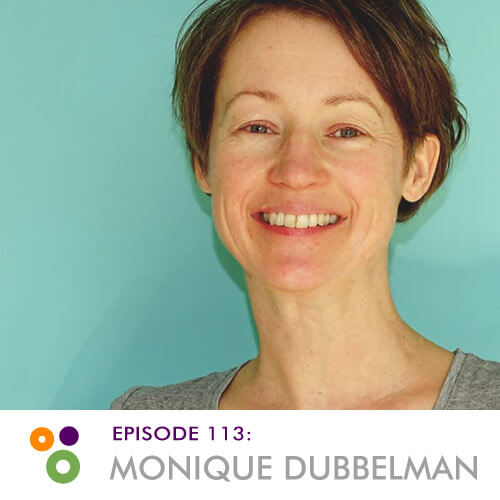Episode 53: Michele Butcher-Jones

Podcast: Play in new window | Download
Subscribe: RSS
Introducing Michele Butcher-Jones
Michele Butcher-Jones is the WordPress technical specialist for Thrive Agency. She also teaches beginners WordPress and freelances with her own shop 13 Core. In her free time, she blogs at Can’t Speak Geek. She’s a lead organizer for the Southern Illinois WP Meetup and runs WP Kids, a Slack group for people interested in organizing WordCamps for kids.
Show Notes
Website | Can’t Speak Geek
Website | Thrive Agency
Website | 13Core
Twitter | @michele_butcher
Slack | WP Kids Slack is at WPKids.slack.com (Request invite through Twitter @kidswc)
Make WordPress | michelebutcher-jones
Episode Transcript
Liam: This is Hallway Chats, where we talk with some of the unique people in and around WordPress.
Tara: Together, we meet and chat with folks you may not know about in our community.
Liam: With our guests, we’ll explore stories of living – and of making a living with WordPress.
Liam: And now the conversation begins. This is Episode 53.
Liam: Welcome to Hallway Chats. I’m Liam Dempsey.
Tara: And I’m Tara Claeys. Today, we’re joined by Michele Butcher-Jones. Michele is the WordPress technical specialist for Thrive Agency. She also teaches beginners WordPress and freelances with her own shop 13 Core. In her free time, she blogs at Can’t Speak Geek. She’s a lead organizer for the Southern Illinois WP Meetup and runs WP Kids, a Slack group for people interested in organizing WordCamps for kids. Hi Michele, welcome to Hallway Chats.
Michele: Hi Tara and Liam, I am so happy to be here. I absolutely love your guys’ show and glad to be included on it.
Liam: Aw, thanks. We love that, what a great way to greet us. Thank you. We’re so thrilled that you’re here. Will you tell us a little bit more than what Tara shared about you?
Michele: Okay. First of all, I am in Carbondale, Illinois which is the southern part of the state. We like to say it’s a prettier sight from Chicago. I’ve been in WordPress since 2011 and also, on my free time, I am a part-time hobby photographer. I mostly do nature and kids. I live with my husband and my 14-year-old daughter who’s also into WordPress.
Tara: Tell us how you started with WordPress?
Michele: How I got started in WordPress is actually a funny story. I was talking with a friend of mine back in 2010 about starting just a personal blog as I was a preschool teacher and had been for about two years by that point. I was wanting to blog about different stuff when it came to kids and preschool teachers and things like that. At that time, a friend of mine was writing a security plugin called Better WP Security at that time. The friend was Chris Wiegman. He started helping me build my site teaching me along the way. The more I learned how to do my own site, the more I was like, “I can actually do this as a job.” I started out more doing just my personal stuff and then I got in with WP Security Lock which is a WordPress security cleaning company based out of Northern Illinois. And I worked with security and support for many years and doing my own freelance thing, and have now ended up doing agency support for Thrive Agency.
Liam: That’s pretty impressive way around that, that’s awesome. What’s the timeframe there? You said you started getting into it in 2010 and now you’re working with Thrive Agency, you do a little bit on the side through your own 13 Core and you’re blogging still. And if you’re organizing a WordPress meetup and running a Slack group, you’re pretty active all-around. What’s the timeframe here?
Michele: Well, when I was introduced was November of 2010. November of 2011 was when I setup 13 Core, that was just mostly doing hosting and maintenance-type things. And then WP Security Lock was April of 2012. Then I started working for different plugin support companies like Yoast and Give and WP Rocket, those happened around 2015 and 2016. I also did agency support for Valet back in 2016 as well.
Liam: As you are sharing those dates, I can see that you are looking up and remembering. I don’t think I could remember those kind of dates without looking at a resume or some kind of LinkedIn profile. That’s pretty impressive.
Michele: I am surprisingly really good when it comes to dates and numbers. The biggest one, as I remember, in high school, I was actually going through the Military Entrance Program to join the Navy, which ended up I wasn’t able to due to a medical disqualification. But I remember learning my social security number then. And at the same time, I also learned my driver’s license number. Back in college, I actually got out of a ticket where I forgot my driver’s license that wasn’t on me. I was actually en route to pick it back up because I forgot it at a friend’s house and got out of the ticket because I was able to let the officer know what the number was and when it expired.
Tara: That’s awesome, I don’t know if that would work every time. It sounds like you got lucky with that one.
Michele: I only did it once but it worked. [laughs]
Liam: All you need is one, that’s all you need. Michele, it sounds like you’re pretty active in the WordPress community. Tell us how you got into that and what you think about all of it.
Michele: I’m actually even more involved than just what you said. My first WordCamp was WordCamp Chicago 2012 and I absolutely fell in love with the community. I was lucky that my first WordCamp, I even actually got to meet and speak with for a few minutes with Matt Mullenweg, and it just, I use a term loosely, created a monster. Carbondale area did not have any type of meetups so I helped organize and start the one here with help from Andrea Middleton. Since, still, ours was really, really small, I also helped organize WordCamp St. Louis as that is our closest camp to here. And I’ve been doing that for four years. Then last year, I was able to be the speaker lead for WordCamp US. This year, I’m helping out with the marketing team.
Liam: Well, that’s enough to keep you busy.
Michele: Yes, I enjoy staying busy. My grandfather was a very big believer, promoter of the idle hands as Devil’s playground. When he wasn’t doing his nine to five job, he was out in his workshop building things, making things, or working on stuff on his house. The only time he really rested was when he slept and I kind of kept up with that type of mentality.
Tara: Sounds like you have a good example there and that’s a good transition for me to move into the question that we love to ask about success. Since you have this role model in your grandfather who sounds like he was very productive and always had something to do, sometimes people would define success in those types of ways. We like to ask people, what is your definition of success, Michelle? Whether it’s in your personal life or your professional life or both. How would you define it?
Michele: Success for me is actually, in a way, a quite oxymoron type of view because success is when you are content with where you are, whether it be professionally or personally, or even in a relationship with your spouse or boyfriend, girlfriend, whatever. Success is being happy, however, to me at least, you should always strive to make it better, make it more comfortable, make it more happier. I try to make sure that even though while I’m staying busy, it’s all things I love because of the old rule of, if you love what you do, you never really work a day in your life.
Tara: I like that quote, I’m not sure I’ve ever heard that before.
Michele: I was very, very much a grandpa’s kid growing up, and even still a grandpa’s kid as an adult, even though that he passed on eight years ago. He was full of the old wise tales type things.
Tara: Yeah, little words of wisdom.
Michele: Yes.
Tara: Thank you for sharing your definition of success. Would you say that that comes from your grandfather, that idea of being happy? Do you think he loved all those things that he did all the time or was he–
Michele: Oh, yes. His favorite part-time was woodworking. He would build– I have clocks and different things even in my house that he had built. While his hands were always busy, he was happy and I would sit out there and watch him when I was very little and he’d be talking about what he was doing. And he ever said, “If I ever get tired of this, I will just quite building it.” That’s kind of how he was in his work life, too, with things is once it started being something he wasn’t really wanting to do, he’d switch profession, actually about four or five different times.
Liam: That’s really neat, I love that. I want to go back to your definition of success about being content where you are and tying into some of the things you shared about your grandfather and his belief about being happy in your work, and if you’re not happy, change. It sounds like you certainly did that as you transitioned from preschool teaching. You never said you weren’t happy with it but apparently, you’re very happy with WordPress. But how do you, in light of your definition of success, when you’re finding yourself in a work or personal situation where you’re not happy? It’s not a fundamental ‘I need a career change’ unhappiness but it’s a difficult situation at work, a client isn’t happy, maybe the company is going through and there’s just stress around that. How do you deal with that? How do you cope with that?
Michele: The biggest thing is just a mindset when it comes to issues and problems. A person can either look for the solutions or keep staring at the problem. I’m one who always finds solutions. It goes on with my own life, I’m usually the one that gets to handle the clients at Thrive who get upset about something not working. And I’ve had a couple where they’ve been on the phone very upset and I’m like, “Let’s take a moment, let’s try to find a solution for you.” It seems to defuse almost any situation and it keeps your eye on the prize.
Liam: Yeah, I think even just when people hear that we want to find a solution, let’s talk about that, let’s think about that, let’s work together on that. But within that kind of environment, you talked that you were good at finding solutions, so what does that look like to you? Realizing that every situation is a little bit different, it’s going to pull on your experience, but do you start just jotting down ideas, do you just start talking, “Well, what if we do this?” You’re kind of sticking loud. How does your ‘find the solution’ approach come together?
Michele: It starts just with the first mental brainstorming of it. If it’s something that I absolutely have no clue on, I either go to Google, I go to people who I might think know the answer. I believe, to be successful with anything really is to have a good network of people that can just be even on your own personalness of if you are having a bad day, that great network to talk to people to help you get through the day better. If you’re having mental health issues type of thing. Down to with a professional of a client saying, “I need help with this.” The best answer is then if you don’t know is, “I’m sorry, I do not know this but let me find someone who can help you.” Which is still working towards the solution.
Tara: I think providing support is probably one of the hardest jobs that you can do and finding what you just described and having the patience to draw upon that side of yourself is a real skill, is that something that you’ve brought with you or is it something that you’ve sort of learned the hard way by doing that?
Michele: I’ve kind of came by it naturally. I joke and say if I can handle a room full of ten toddlers, I can pretty much handle anyone.
Tara: That would help you with patience for sure. [laughter]
Michele: Going back just with the family traits and my grandfather, he was kind of my father figure growing up because my mom was a single parent. But most of his jobs were support-related, his last one was he was a janitor at a high school. He also was the Maytag man, service technician. And my grand aunt, his sister, who I was also raised around, was a nurse forever. She’s 98 years old and still living quite well, and my mom was a preschool teacher. So I was always raised around helping people.
Liam: I like that, that’s really interesting and I think I’m hearing in your voice and in your answers that what you’re sharing is not something that you just stumbled upon last week or last year or even five years ago. But there’s a real history to it. I want to go back to your comments around the value of a support network, and I couldn’t agree with you more that personally and professionally, maybe even personally is where it’s so much more important. Networking professionally is good for a career but personally, if you don’t have a network, life can just be overwhelming. You’re doing a lot of organizing within the WordPress community. You talked about WordCamps and your meetup and now working with US. What kind of work are you doing to empower others or enable others to build their own support networks through the WordPress community? I don’t mean to put you on the spot but I think a lot of what you’re doing would lend itself to that and I wonder if that’s something you’re doing consciously or it’s just part of who you are and what you do and that’s a natural byproduct?
Michele: That kind of goes back into, I was also, in my college years, a DJ. It was always my job to make sure everyone’s having a good time. And I’ve noticed myself, especially at WordCamp US this past year. I had a few number of friends that that was their first WordCamp ever, and they were quite nervous about it. I was the one kind of grabbing their hand, “Come on, let me introduce you to such and such.” And pulling them into circles and they’re like– I have had over the course of past couple of years people asking me, “How do you do it? How do I get involved?” It’s more of just putting yourself out there for it. With the look between professionally and personally, there’s so many people I have met professionally with WordPress who became really close friends personally.
Tara: I’m going to switch gears and I love hearing about that, I definitely fit into that category of people who have found their way and passionate about WordCamps. I love going to WordCamps. We’ve talked to a lot of people for whom WordCamps have changed their life. I want to come back to sort of what your grandfather taught you and your definition of success and how you approach your support tasks that you have and being patient with people and ask you about, in order to achieve all of this, what is the most important thing that you do every day?
Michele: That is actually two-fold. With me having a 14-year-old daughter who is into a lot of things and my husband’s into a few groups as well, and I do things outside of WordPress. Every morning when I wake up, I first say to myself what the day is and then I from memory kind of go over what I’m supposed to do in my head. And this is still just laying in bed as soon as the alarm goes off, and getting myself mentally prepared. Then once I get up, get ready, brush the teeth and sit down at my desk every morning. I go through my calendar again and look at everything that has to be done. All the meetings, all the schedules and things of that nature. Then branch out on the top things I want to get done both professionally and personally, above all the scheduled events. Be like, “I want to make sure I get a WordPress blog out. And make sure I set out the chicken at noon so it’s defrosted for dinner.” [laughter] I’m very much a note and task and calendar type person. It’s sitting on my couch right now because I was looking at it earlier. I have a paper calendar that has all of my scheduled meetings, all of my to-do lists, meal planning, all of that so I can stay on task. And that helps, for me at least, to not stray away from what needs to be done and for me to be successful every day.
Tara: Yeah, I love hearing everyone’s different methods of organizing their day and their life and writing it down certainly is something that resonates with lots of people. No matter how many online tools you have, there’s something about writing it down that helps you remember it and keep track of it.
Michele: And who does not get the great feeling when they do the task and they go, “Check, I’m done.”
Tara: That’s very true, that is very, very true.
Liam: Writing it down never helps me remember to take the meal out of the freezer in time. I can’t remember that to save my life.
Michele: I may or may not– I have a hutch-type desk and I may or may not have sticky notes right up on my laptop, and set reminders on my phone to go off at noon like, “Take food out!” [laughs]
Liam: That’s what I need. I need the frozen chicken to text me, to say, “Hey, it’s cold in here. Come get us! We want to warm up.”
Michele: If you’re on the iPhone, the Reminders app is just ridiculously awesome for that kind of stuff.
Tara: Yeah. I thought Instant Pot was invented for people like us who don’t remember to take the food out of the freezer. I don’t have one but I’ve heard that that thing’s amazing.
Michele: I got one for Black Friday sale and have yet to even take it out of the box. [laughter]
Tara: Oh, gosh. Well, the first day you forget to take the chicken out of the freezer will be the day you take Instant Pot out of the box, I can see it right now. [laughter] Can you tell us a little bit more about what you do with kids? We’ve read that at the beginning and I’m really interested to hear more about that.
Michele: Well, I was actually a preschool teacher for 12 years and it kind of overlapped with me first getting introduced to WordPress. I’ve always loved teaching, whether it be teaching preschoolers or teaching beginners WordPress and just everything in between. Even in high school, my math teacher kept trying to talk me into becoming a math teacher once I graduate high school, which totally didn’t happen. I couldn’t teach high schoolers to save a life. [laughs]
Tara: I agree.
Michele: Once I completely moved over to WordPress, I kind of missed the kid aspect about it and back in 2015, I went down to WordCamp Miami and helped out with their kids camp down there and fell in love with it. Came back, we actually did it in St. Louis that year as well, Working with Sandy Edwards and a few others just how it’s done everywhere. It’s like, this needs to be more dictative so it would make it easier for actually every place to teach. Because my philosophy on it, if we want WordPress to keep growing, we need to pull in the younger ones as well.
Tara: Yeah, that really interests me. I had a couple of family members and I set them up with a WordPress website and I was curious to see what they instinctually did. And I put a page builder on it to try to make it easy. That thing that says customize is what these kids– they just went after that right away. But they’re so app-oriented. Young kids these days. I sound like an old lady. They don’t even type any punctuation because it’s done for them. They don’t capitalize the letter I because it automatically capitalizes for them when you type it into your phone. I would think that we’ll be seeing more and more things that are geared to match the functionality that young people are seeing on their apps. And I’m talking like an old lady. But tell us a little bit about the difference between teaching young people and old people.
Michele: Actually, there’s differences but a lot of similarities. Especially if you’re looking at the older group who wasn’t really raised in the growth of technology as your 25 to 45-year-olds are. When it comes to teaching above 45s, sometimes it’s almost like new kids to tech as teaching, but kids get a lot more with the creativeness of it, as you saw with the customizer and stuff. And at kid camps, it’s so much fun to have them working in the customizer and stuff but not letting them see the sight until they’re done. When they switched it over, it’s almost like a five-year-old learning how to tie their shoe the first time. They are all just big smiles and it makes it all worth it. When it comes to teaching adults, the fact that they can see it being built on it is just amazing way to watch them grow technology-wise.
Liam: I just want to comment about Tara thinking she’s sounding old while recording a podcast that we’re going to publish on the internet. [laughter]
Tara: Well, I know I’m older than you so I guess I can try to get away with it. [laughter] I think skills may need a little help, I will not be on stage anytime soon.
Liam: Michele, let me ask you another one of our big questions here. What is the single most valuable piece of advice, be it professional, personal, or both, that you’ve received and implemented in your life?
Tara: And one from your grandfather but one from not your grandfather.
Liam: While she’s thinking about that, I was just going to say, Tara, that I was going to bet that it was going to come from her grandfather. But now you put the pressure on it and now she can’t remember what grandpa said that one time.
Tara: Made it tricky.
Michele: For him, it would probably be the one statement I always actually hated hearing him say. That was, “Don’t count your chickens before they hatch.” I could not stand that saying but it’s so true of making sure you have everything in order before going for it. Because if you build up such anticipation for something, often times, you’re either let down or God and Universe and Murphy’s Law has other ideas for you. So it’s good to always be prepared for the worst but hopeful for the best. I was probably in my mid-20s before I was finally like, “You know, that thing makes sense and it’s true. Darn it!” [laughter]
Tara: That’s where you get some of your patience from.
Michele: But for me, for the personal, not really taught by him or one of his sayings, but still just in a way I was raised, too, of the ‘don’t hesitate, go for it’ mentality, of the more you sit back and think, “Well, can I? Should I?” The more self-doubt you give and often times you don’t do it and then you never really regret things you did, you regret more the things you didn’t do, unless, you know, they’re illegal. [laughter]
Liam: Don’t go for those.
Michele: How many times have you sit back and said, “I wish I would have done this five years ago. I wish I could have went back to high school and done this differently instead of–” You know. “Oh, I really wish I would five years ago have met WordPress and be where I am now.” If I see things, I typically try to go for them and let the pieces fall where they may instead of sitting back watching from the sidelines.
Liam: I like how those two bits of advice tie together. The one about going for it is requirement of hard work and self-reliance and initiative and bravery and courage, but balanced with the, just because you started doesn’t mean you’re there yet. Don’t count those chickens, even if they are still in the freezer. Don’t count them yet. I like that. Thank you for sharing those.
Michele: The other thing I would have to add to that is never stop learning and never stop wanting to learn. Because when you think you know it all, that’s when you kind of revert back to a teenager. [laughs]
Tara: Yeah, that’s true. How do you determine what’s the next thing for you to learn?
Michele: Mostly what interests me because things are always evolving. When I first got into WordPress, I really, really wanted to be a developer. And I noticed after a few years of being just of many types of people, and I was very lucky to be surrounded by many smart people in the industry. Where I decided was talking actually with Chris Wiegman one day and I was like, “You know, I’m not a developer. I never will really be one to build things new. I’m a fixer, I like fixing things.” That’s where I really went full force on the support type roles and I found that is really what I enjoy. It sometimes does give me time so I do get to write code and stuff like that but I enjoy mostly helping people.
Tara: That’s a great realization to have. There’s a great temptation, I can share that, to want to be a developer and know how to do everything. It’s just so much to learn it can be overwhelming. And fixing things one at a time is a little bit more manageable, right? You learn what you need to learn to fix it and then you move to what you need to learn to fix the next thing.
Michele: And I love Pandora’s Box type things. Give me a riddle and I will sit there and manipulate and play with it.
Tara: Oh, now I know who to call. Now I know. [laughter]
Liam: Yeah, don’t call me. I can’t stand that. [laughter]
Tara: It’s like trying to find that two cents in your checkbook years ago when we used to actually manually balance our checkbooks, and you’d be two cents off but you need the kind of person that would–
Michele: Oh, I can spend two hours trying to figure it all out. Grabbing a new bank register and writing it all down correctly. [laughter]
Tara: Alright, we definitely have a common thread there. I can do that, too. Yeah, code relates to that, I think.
Michele: Even in my relaxed time on the couch, I’m typically playing the Candy Crush Saga or Tetris or something like that on my phone, which is still very much puzzle games.
Tara: Yeah.
Liam: Well, I do like Tetris but it’s just a game.
Michele: I do mine for bored and nothing else to do and haven’t grabbed my Kindle yet to start reading. [laughing]
Liam: Michele, we are just about of time so I’m going to thank you very much for joining us out here in our little virtual hallway with our modern technology and our curmudgeonly backward-facing perspectives. Before we say goodbye to you, I just want to ask you if you can share where people can find you online, please?
Michele: Yes. On Twitter, I am at @michele_butcher, Facebook Michele Jones, and most everything either Michele Jones or Michele Butcher-Jones.
Liam: Excellent, we’ll make sure we get those links and put them in the show notes so people don’t have to guess how to spell Butcher.
Michele: Spelling Butcher is easy, it’s the first name often has issues because I am a one-L Michele.
Liam: One-L Michele, there we go.
Tara: Well, thank you, Michele, for joining us today, it’s been a pleasure chatting with you and hearing your stories and hearing about your grandfather, thanks for sharing everything with us, really appreciate it.
Michele: Thank you so much. This has actually been one of the most fun and kind of harder interviews than I really would have liked it because it’s really made me think.
Tara: Great. Thanks for saying that, appreciate it. Alright Michele, hope to see you at WordCamp. Take care.
Liam: We’ll see you soon, bye-bye.
Tara: If you like what we’re doing here – meeting new people in our WordPress community – we invite you to tell others about it. We’re on iTunes and at hallwaychats-staging.ulpgsyz6-liquidwebsites.com.
Liam: Better yet, ask your WordPress friends and colleagues to join us on the show. Encourage them to complete the “Be on the show” form on our site, to tell us about themselves.
Tara: If you like what we’re doing here – meeting new people in our WordPress community – we invite you to tell others about it. We’re on iTunes and at hallwaychats-staging.ulpgsyz6-liquidwebsites.com.
Liam: Better yet, ask your WordPress friends and colleagues to join us on the show. Encourage them to complete the “Be on the show” form on our site, to tell us about themselves.





